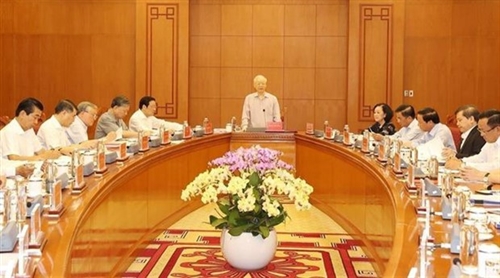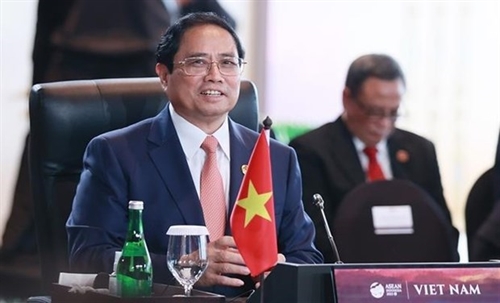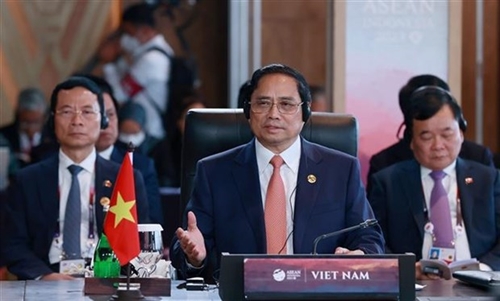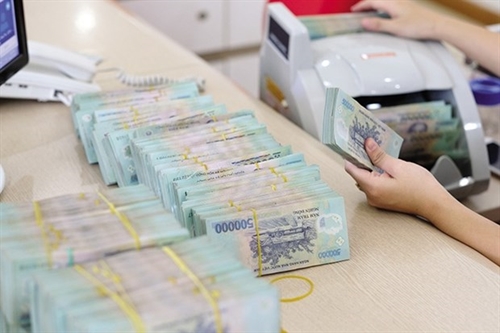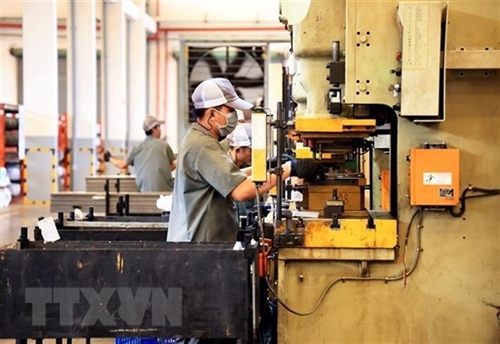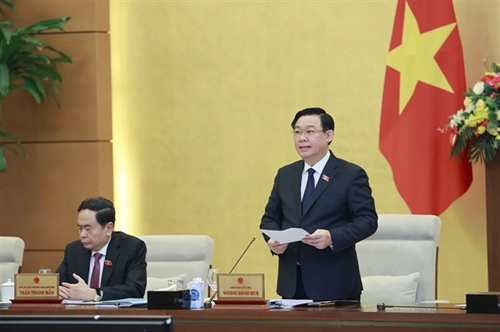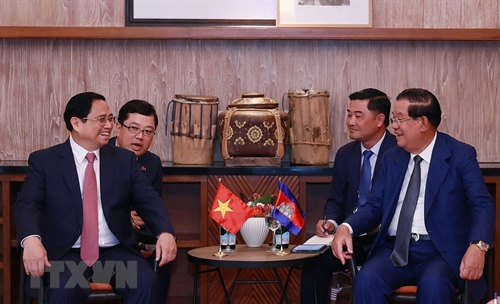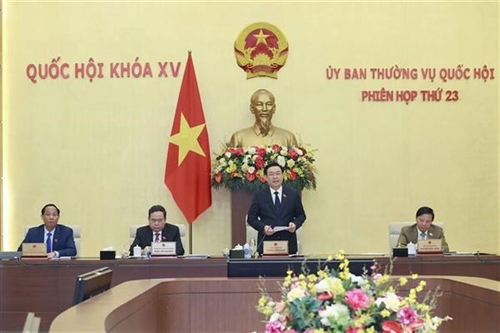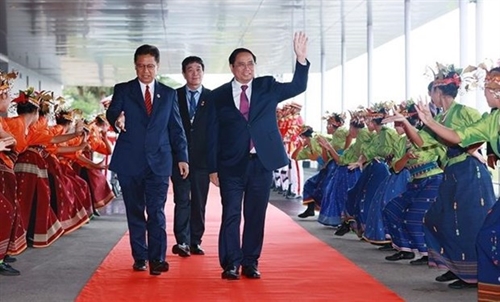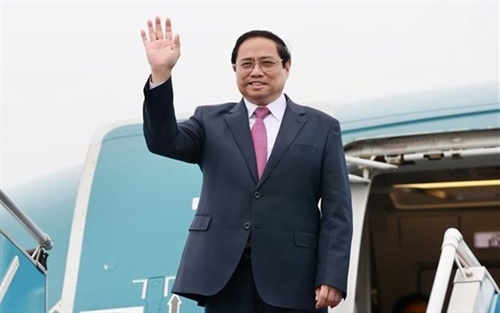The trip to Indonesia by Prime Minister Pham Minh Chinh and his entourage to attend the 42nd ASEAN Summit from May 9 to 11 has become a fine success which saw the leader make several proposals promoting self-reliance and unlocking resources for the development of the ASEAN Community, Minister of Foreign Affairs Bui Thanh Son said.
Talking to the press about the trip’s outcomes, the minister noted that on May 10 and 11, ASEAN leaders discussed and reached consensus on many important orientations for the bloc’s cooperation in 2023 and coming years. Their discussions focused on the theme of “ASEAN Matters: Epicentrum of Growth”.
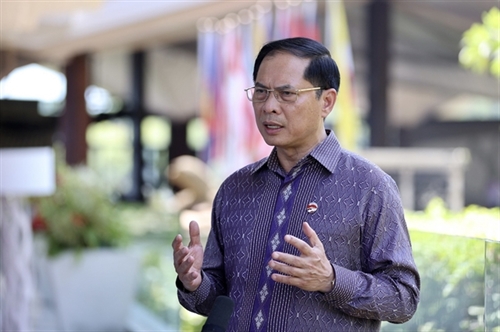 |
| Minister of Foreign Affairs Bui Thanh Son talks to reporters__Photo: VNA |
The leaders also engaged in dialogues with representatives of the ASEAN Inter-Parliamentary Assembly (AIPA), the youth, the ASEAN Business Advisory Council, and the High-Level Task Force on the ASEAN Community’s Post-2025 Vision. Opinions raised at the events reflected the determination to join hands to build a truly people-oriented and people-centered community.
Minister Son said PM Chinh and the Vietnamese delegation sent out many important messages at the summit, held in Labuan Bajo town, including those on the solidarity of ASEAN, the resolve to make substantive and effective contributions to ASEAN Community building, and the Vietnamese Party and State’s consistent viewpoint of considering ASEAN as an important and integral part of the country’s foreign policy.
In that spirit, PM Chinh’s remarks were aimed at suggesting ideas, inspiring self-reliance, and unlocking resources for the development of the ASEAN Community.
First, solidarity, unity, independence, self-reliance, and strongly bringing into play the centrality of ASEAN serve as the fundamental values for the bloc’s success. The Vietnamese Government's leader emphasized solidarity creates unbreakable strength and must be shown via the will of member countries and their concrete actions, and that enhancing solidarity and unity is the core task for the sake of an independent and self-reliant ASEAN.
He stressed the need for ASEAN to maintain its strategic balance in its relations with partners, especially superpowers. By doing so, the bloc will manage to keep its centrality. It must also truly be a trustworthy bridge capable of harmonizing relations with superpowers; create and promote a culture of dialogue, consultation and trust building; and coordinate to respond to common challenges.
Second, the PM highlighted that promoting regional institutions, infrastructure, and people-to-people connectivity to remove bottlenecks and tap into development potential forms the three strategic breakthroughs for creating stronger development momentum for ASEAN in the coming decades.
Amid numerous latent risks and uncertainties in the global economy, to foster sustainable recovery and development, he recommended member countries expand the intra-bloc market, step up negotiations to upgrade the ASEAN Trade in Goods Agreement, comprehensively and strongly implement regional connectivity projects, and make substantive improvements to the investment, business, and tourism environment.
PM Chinh also called for more attention to augmenting ties in developing digital economies, digital governments, and circular economies, connecting the grids of member countries, developing renewable energy, devising long-term strategies for training high-quality human resources, and improving the implementation of the agreement on the mutual recognition of labor of some professions in ASEAN.
Third, based on the bloc’s core spirit of centering people and taking people as the target of Community building, the PM held that ASEAN should enhance efforts to narrow the development gap, especially in remote areas and sub-regions. Sub-regional cooperation should be connected with common cooperation programs of the ASEAN Community in all fields in order to open a wider development space and ensure a better life for all, according to the diplomat.
At the summit, PM Chinh and other regional leaders also had in-depth discussions on regional and international issues and reaffirmed ASEAN’s principled stance.
He underlined that protecting peace, stability, security, and freedom of navigation and overflight in the South China Sea (known in Vietnam as the East Sea) is both an interest and a responsibility of all countries. He asked for the full and effective implementation of the Declaration on the Conduct of Parties in the South China Sea (DOC), as well as efforts to achieve a substantive and effective code of conduct (COC) that matches international law and the 1982 United Nations Convention on the Law of the Sea (UNCLOS).
PM Chinh’s proposals and contributions received support and high evaluation from participants, Sơn said.
He added that on this occasion, the Vietnamese PM also met with other ASEAN leaders to review the implementation of bilateral agreements and look into measures for strengthening ties in the economy, trade, investment, security and defense, culture, education, and people-to-people exchanges in a more results-oriented and fruitful fashion.- (VNS/VLLF)
